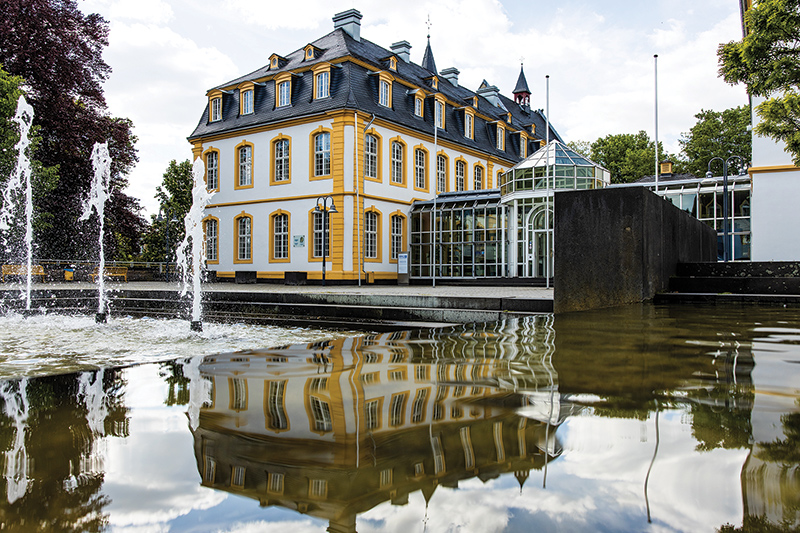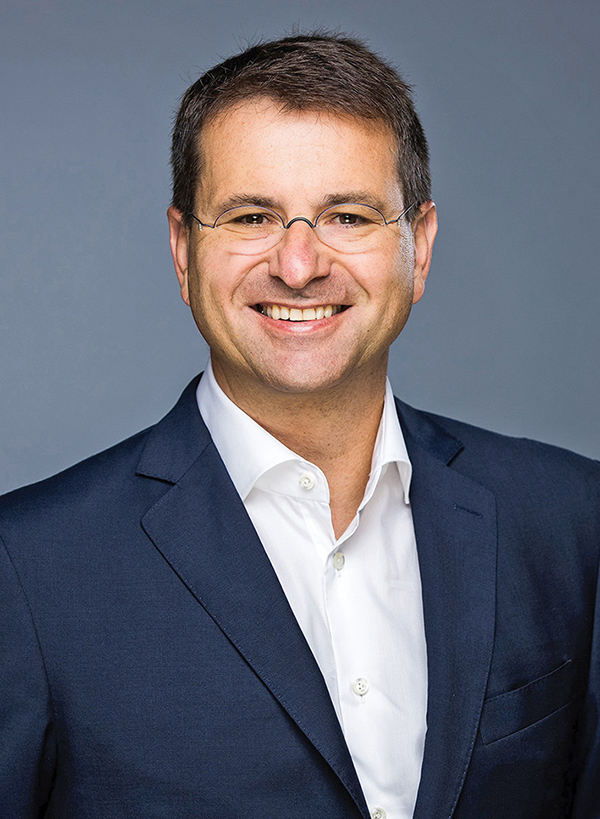Europe Nurtures Responsible Leaders for a New Economy
Higher education has a critical role to play in laying the foundations for ethical and responsible leadership
“It’s our responsibility to ensure students are prepared to face challenges related to social development and sustainability. They are tomorrow’s decision makers,” says Dean Christophe Germain of top-tier Audencia, reflecting the opinion of Europe’s best management educators. Originated in the French city of Nantes, Audencia’s overarching objective is to create a better school for a better world. “As part of this, we’ve launched Gaïa, Europe’s first School of Ecological and Social Transition, where all students and executive education participants will follow courses and work on projects for partner companies,” he states.
“Business schools have to be the facilitators of a world that needs to be reinvented.”
EADA Business School Barcelona’s Dean Jordi Díaz agrees that “Business schools have to be the facilitators of a world that needs to be reinvented. We were pioneers in this with the first master’s degree in sustainable business and innovation. We see need from young people wanting to change the world and senior leaders switching to a new mindset.” EADA has important alliances in sustainability and social responsibility, he reveals. “We collaborate with BCorp, the movement for certifications that consider sustainable impact, and Ashoka, the organization for social entrepreneurship. Schools need to be open to cooperate beyond traditional boundaries.”
Diversified collaboration is also the approach of Bologna Business School (BBS), which is building a center for management education on sustainability and climate change with its partners. Dean and CEO Massimo Bergami comments: “BBS’s ‘Live, Learn, Lead’ motto sums it up. Our professors and students share the mission to lead and help others develop their skills. Last year, for example, we created the BBS React initiative for students and alumni aiming to help companies in trouble because of the pandemic.”
For Italy’s Luiss Business School, “Ethics, responsibility and sustainability are entrepreneurial and managerial skills,” says Dean Paolo Boccardelli. “Our Ethics, Responsibility and Sustainability Hub, now CeSID, develops those aspects. Additionally, we have a research center for sustainability and the circular economy that works extensively with companies in energy, manufacturing and services.”
Students at pan-European ESCP Business School have also been working closely with companies on environmental societal governance issues since it established a chair for circular economy and sustainable business models with Deloitte in 2018. “This is a subject of vital importance,” according to Dean and Executive President Frank Bournois.
Dean Jean-Philippe Bonardi of Switzerland’s HEC Lausanne is another who believes introducing courses is great, but not enough. “We need to go further, imagine what the economy might become, and how it might be more sustainable and inclusive,” he says. To do this, HEC Lausanne, the International Institute for Management Development (IMD) and École Polytechnique Fédérale de Lausanne (EPFL) have established the Enterprise for Society (E4S) center. This offers joint education programs, is a competence center and a collaborative network. “E4S’s purpose is to think together about the future of the economy in an interdisciplinary way,” he notes.
As economic models advance with respect to issues like climate change, natural resources, digitalization, inequality, ethics and promoting global stakeholder value, the knowledge and skills a responsible leader needs are also constantly evolving. Ranked in the Financial Times top-10 European institutions for research publications related to responsibility and sustainability, and tasked with the specific mission of training responsible managers and entrepreneurs, triple-crowned ESSCA School of Management is one educator at the forefront of defining the capabilities tomorrow’s leaders will require and equipping them for the challenges they will face.
“I want to see the extent to which we can make a contribution to a more balanced world.”
Founded in 1909 in Angers in western France to put the values of humanism at the center of economic activity, the theme of responsible leadership links all of ESSCA’s academic and professional management programs as well as its research. It believes that to create truly responsible leaders, business education must go beyond the literal tying together of leadership and corporate social responsibility theories.
Instead, it must take a holistic approach to the relationship between leaders and all stakeholders in their activities, as well as the various roles of responsible leaders, including those of steward, citizen, servant, visionary, architect, agent of change, coach and storyteller.
To foster multicultural dimensions in leadership, “All our master’s students spend at least one year abroad during their education,” states Dean and CEO Jean Charroin. ESSCA’s global footprint overall is substantial and it currently operates eight medium-sized campuses in France, Hungary and China. “This enables us to be close to entrepreneurial ecosystems and local communities. It’s also important to be close to top-level academic environments. We are very open to working with other institutions; schools of design, politics and engineering, for example. A large part of the solutions for a more sustainable world will come from interdisciplinary approaches,” he says.
He gives the following illustration: “We are changing the curriculum of our Masters in Management to include more math, coding and data sciences. We want alumni who can address the complexity of the world and the growing importance of new technologies.” In ten years’ time, he hopes those alumni look back with pride at the education they received at ESSCA, “I want to see the extent to which we can make a contribution to a more balanced world.”
An Atmosphere That Attracts Entrepreneurs
Germany’s leading business and management school has a remarkable track record in nurturing startups to success

Over the last 35 years, four unicorns and over 500 startups have been created by students and alumni of Germany’s foremost business and management education provider: WHU – Otto Beisheim School of Management.
“We’ve created an atmosphere that attracts these kinds of people. We look for excellence in everything we do, while our core values lean toward an entrepreneurial spirit, community focus and ‘cosmopoliteness,’ which represents inclusion, gender equality and international diversity,” explains Dean Markus Rudolf.
With campuses in Vallendar in the Rhine Valley and the vibrant city of Dusseldorf, WHU addresses its entrepreneurial mindset to all its academic programs, executive education and research. Its study programs run from bachelor degrees to MBAs and executive MBAs, with the latest addition being a pioneering Global Online MBA for executives.
Unlike some other schools, WHU has seen significantly more student applications since the emergence of COVID. Much of this is due to selectivity toward high-quality hybrid and digital learning experiences, Rudolf believes: “Being more agile than others was a true asset. We implemented digital teaching immediately.” Since then, WHU has invested well over €1 million to equip classrooms for hybrid teaching, and set up a TV and video studio with high-definition cameras, a center of digitalization and 12 digitalized lecture rooms.
“We want to continue being perceived as a hub for entrepreneurs: it’s the strength of WHU.”
Its approach to sustainability and social responsibility is another draw. “Teaching the way we used to, the neoclassical approach oriented toward shareholder value, is not the right way. We have systematically incorporated sustainability and ethics into all our programs and implemented three new chairs in those areas,” he states.
Internationalization is a further huge advantage. Outside current COVID restrictions, its MBA involves multi-continent travel and is ranked third in the word for international focus by the Financial Times, for example. “We have a very high percentage of international students across our programs. We attract students from all over the world and believe we can achieve a higher level of performance through diversity,” asserts Rudolf.
The WHU Entrepreneurship Center acts as a central platform to support budding entrepreneurs, linking activities such as well funded and highly published research, the WHU Incubator and events like IdeaLab!, probably Europe’s biggest founders’ conference. “We want to continue being perceived as a hub for entrepreneurs: it’s the strength of WHU,” says Rudolf.
‘Cosmopolite’ Ecosystem for Entrepreneurialism
Markus Rudolf, Dean of WHU – Otto Beisheim School of Management, illustrates why the school is the number one provider of business and management education in Germany.

What does WHU – Otto Beisheim School of Management stand for?
WHU stands for possessing an entrepreneurial mindset. We have a very strong community spirit and look for excellence in anything we do while hosting a “cosmopolite” vibrant ecosystem. That means we value inclusion, gender equality and international diversity. Some of our graduates have gone on to found flourishing companies, and this is WHU’s unique value proposition. Our core values lean toward entrepreneurial spirit, community focus and cosmopoliteness.
Can you characterize the experience of the last year at WHU?
We didn’t know what the demand would be for our programs. As time went by, it became clear that potential students were comparing how schools were adapting to the new situation and being selective about the hybrid methods and digital learning experiences being offered. Adapting faster to these needs gave us a competitive advantage. We ended up having twice as many applications for our master’s programs than ever before and significantly more in our MBA programs. Being more agile than others was an asset for us as a comparatively small and entrepreneurial school.
Over the summer, we invested hundreds of thousands of euros to equip our classrooms for hybrid teaching. We’ve set up a TV and video studio with a full wall of screens, high-definition (HD) cameras and ceiling microphones; a center of digitalization in which we invested a seven-digit amount of money; and we now have 12 lecture rooms where we can teach face-to-face, online or mixed.
We’ve also implemented a purely online MBA and have students on that program from all around the world. They’ve never been here, but I talk to them through clear HD cameras. I know who they are, what they’re doing, when they have free time and so on.
What is WHU’s strategy for encouraging social responsibility?
It has become evident that teaching business and management the way we used to — the neoclassical approach oriented toward shareholder value — is not the right way. Because of this, we have systematically incorporated sustainability and ethics into all our programs. All our teachers and supervisors have incorporated these issues into their curriculum. We have also implemented three new chairs, one focused on sustainability and two on business ethics. But the real change is that the viewpoint on business and how it should be taught has changed fundamentally since 2007, and you see that here across every program, from bachelors up to executive MBA.
Why does WHU continually produce high-performing entrepreneurs?
Since it was founded in 1984, WHU has been very focused on entrepreneurship. We’ve created an atmosphere that attracts these kinds of people. We host events like IdeaLab!, which is probably the biggest European founders’ conference. We also have perhaps the most publications in the field of entrepreneurship: faculty hired at our WHU Entrepreneurship Center receive significant amounts of investment, allowing us to teach and do research in these fields. We want to continue being perceived as a hub for entrepreneurs: it’s one of our core values and it’s the strength of WHU.
How international is WHU?
Overall, around 40% of students across our programs are international. We want to attract students from all over the world because we think that we can achieve a higher level of performance by achieving more diversity.
“We are ranked 54 in the world and number one in Germany in the latest Financial Times’ MBA rankings. One of the strengths of our MBA program is its international focus.”
We are ranked 54 in the world and number one in Germany in the latest Financial Times’ MBA rankings. One of the strengths of our MBA program is its international focus. Apart from our substantial number of international students, we also have international elements in the program: we travel to Bangalore, Shanghai and New York City. We are ranked number three in the world when it comes to our international focus. That’s one of the reasons I hope COVID-19 will be left behind us as quickly as possible: we want to be able to continue offering our students the international connections we have.
COVID-19 has shown that it has never been more important to have a multilateral world. An enemy like this can’t be fought on a country-by-country basis. We have to do it together.
What’s in the pipeline for WHU’s executive education?
We’ve just approved a strategy for the next six years with our executive board where executive education plays a major role. I think there is a lot of potential to see strong progress around customized executive education and open enrollment programs. This is a very important pillar in WHU’s strategy.
European Business Schools for the Future Contents:

 Download the PDF
Download the PDF